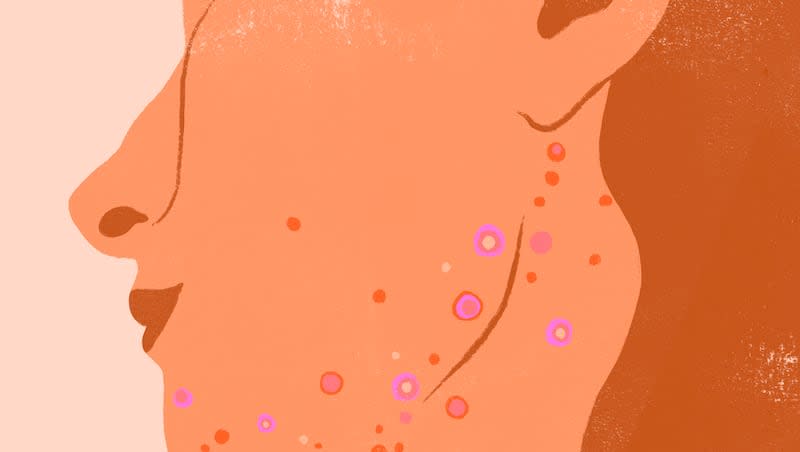Adult acne: Why you get it and what you can do about it

You might have assumed that, as an adult, you’d be done with acne. But the truth is that it’s very common for adults of all ages to still struggle with unexpected breakouts.
Here’s everything you need to know about why you have adult acne — and how to treat it.
Why am I getting acne as an adult?
According to Johns Hopkins Medicine, adult acne is essentially the same acne that we got as teenagers. It isn’t uncommon for early skin issues to persist into adulthood.
Adult acne is any “acne that occurs after age 25,” per Harvard Health.
It reported that there are four direct factors that can cause acne:
Clogged pores.
Bacteria.
Overproduction of oil.
Inflammation.
There are also a few indirect factors that can cause acne, according to Harvard Health:
Hair, makeup or skin care products that clog your pores.
Hormones and stress, including hormones that come from a woman’s menstrual cycle.
Diet, which can cause “inflammation throughout the body.”
Some medications, such as lithium, corticosteroids and anabolic steroids.
According to the American Academy of Dermatology, adult acne is more common among women than men — especially those going through menopause.
It’s worth noting that a sudden onslaught of acne could be a symptom of a larger health problem, per Harvard Health. When adult acne is paired with symptoms like hair loss or “excessive hair growth,” significant weight gain or loss or “irregular menstrual cycles,” it can “be red flags of an underlying disease,” the article said.
If you are experiencing these additional symptoms, health experts say you should consult with your doctor.
What does hormonal acne look like in adults?
According to Healthline, hormonal acne would appear in your T-zone as a teen. But as an adult, hormonal acne “typically forms on the lower part of your face,” including “the bottom of your cheeks and around your jawline.”
It’s different for everyone, but hormonal acne can be whiteheads, blackheads or small pimples (or all of the above) that “come to a head, or cysts.” Cysts are often “deep under the skin” and painful, Healthline reported.
How can you treat adult acne?
Everyone’s skin is different and, therefore, there’s no one-size-fits-all acne treatment and skin care routine. If you’re struggling with adult acne, it might be worth consulting with a dermatologist before you start your skin care regimen.
With that said, there are a few steps you could take to treat your adult acne. Harvard Health suggests the following:
Wash your face before you go to bed — never go to sleep with makeup on.
Check the ingredients of any makeup or skin care products you use. Look for products that say they are “non-comedogenic,” “oil-free” or “won’t clog pores.”
Avoid products that contain oil — including hair care products. The pigment of your skin can change from healing acne spots and being in the sun can make them even darker. Wear sunscreen every day — at least SPF 30+ — to avoid darkening your acne spots.
There are some oral medications and skin care products that could help your adult acne. Healthline suggests:
Salicylic acid or benzoyl peroxide.
Hydroxy acid.
Retinol.
Sulfur.
Clascoterone, or Winlevi.
Blue light therapy.
Antibiotics.
Oral birth control pills.
Oral isotretinoin.
Again, some of these treatments can be aggressive and won’t work for everyone. Consult with a dermatologist before starting treatment.
What deficiency causes adult acne?
A 2013 study found that people with acne had lower levels of vitamin E, vitamin A and zinc in comparison to those with clear skin. Because of this, according to Heathline, zinc and vitamin A could also help with adult acne.

